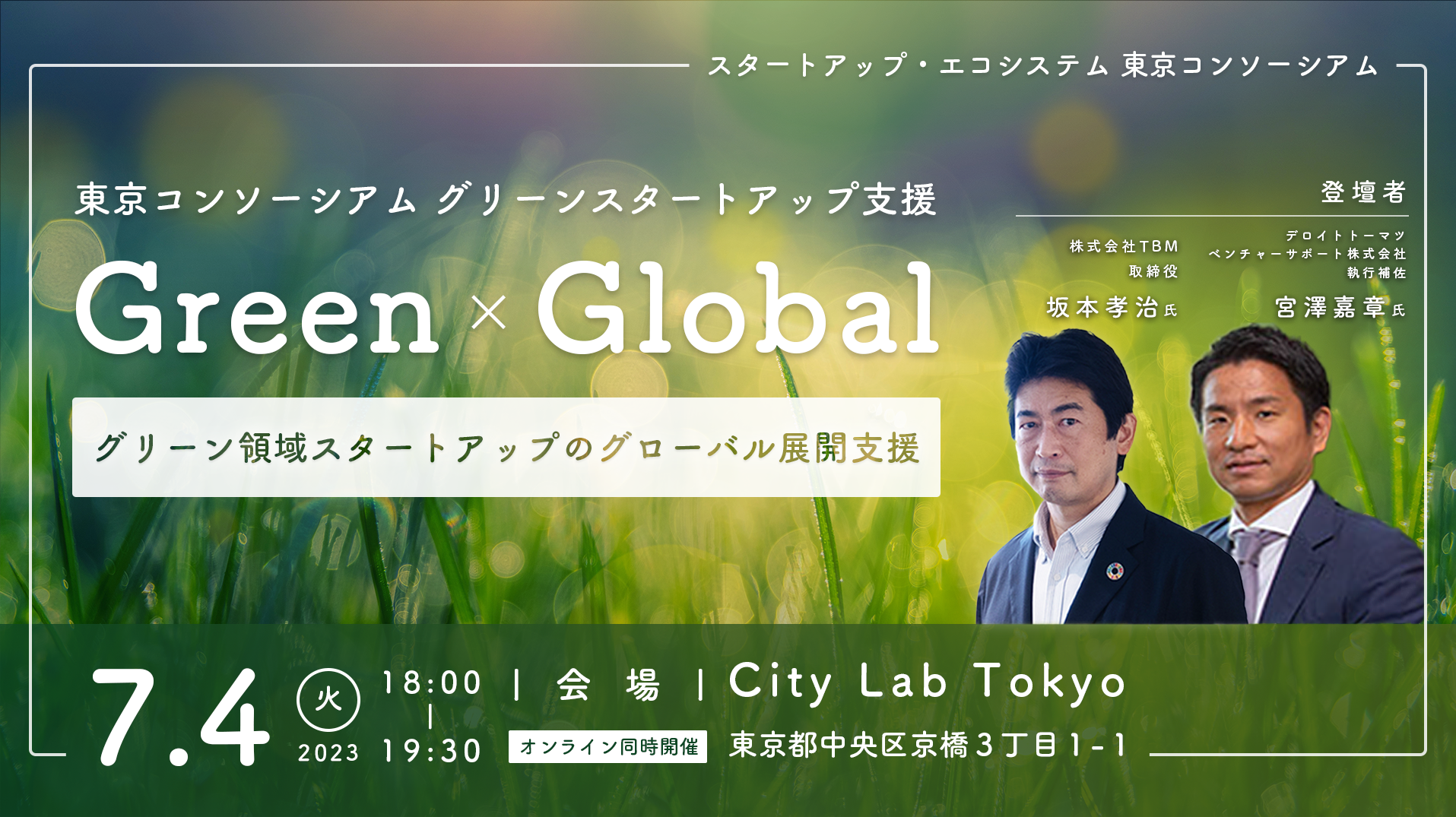
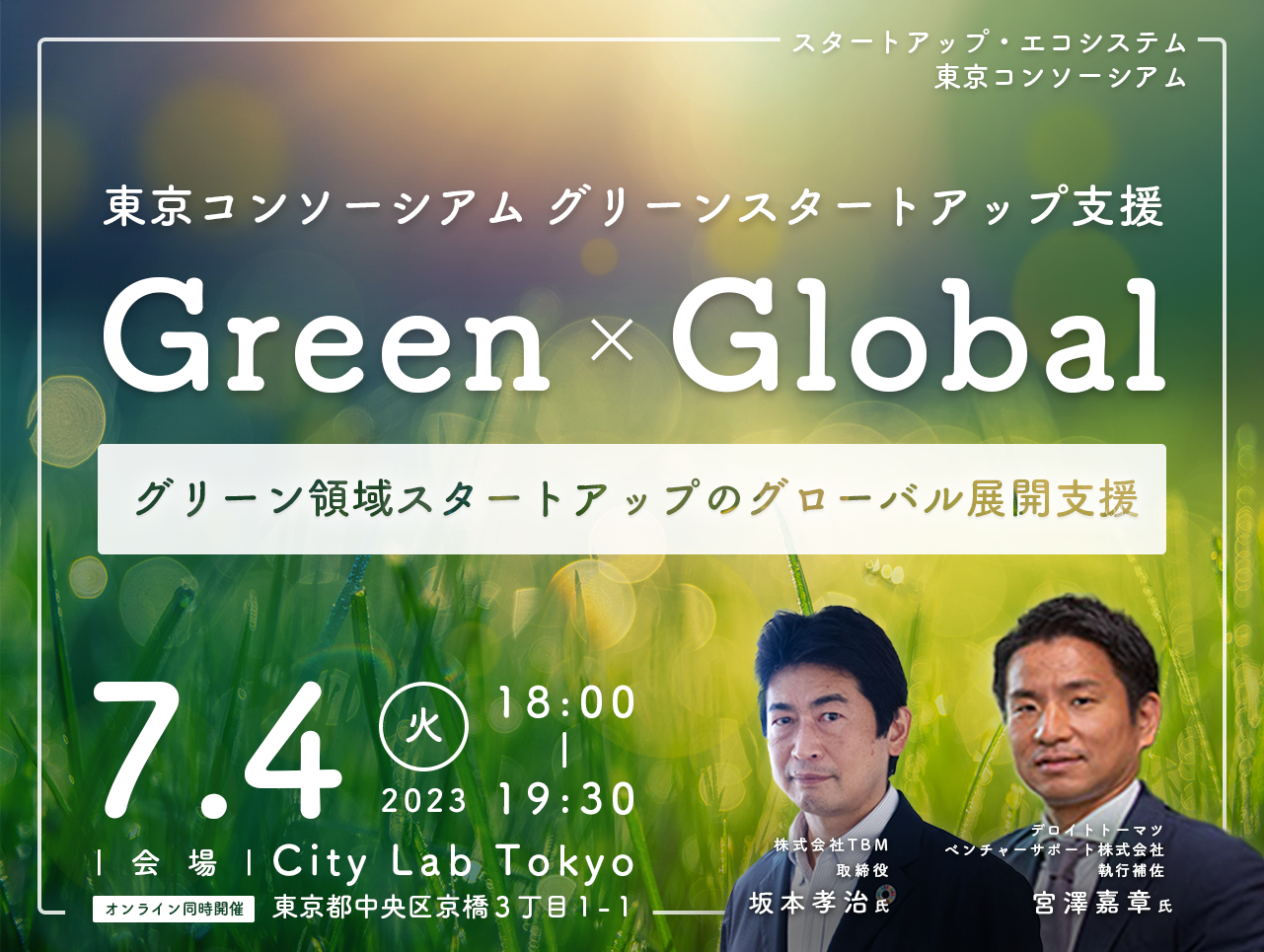

Startup Ecosystem Tokyo Consortium held "Green×Global - Support for global expansion of green domain startups" at City Lab Tokyo on Tuesday, July 2023, 7. On the day of the event, Mr. Koji Sakamoto, Director of TBM Co., Ltd., took the stage and had a special discussion with Yoshiaki Miyazawa, Executive Assistant of Deloitte Tohmatsu Venture Support Co., Ltd. Afterwards, a question and answer session was held for both of them, and at the end, a social gathering was held for the participants.
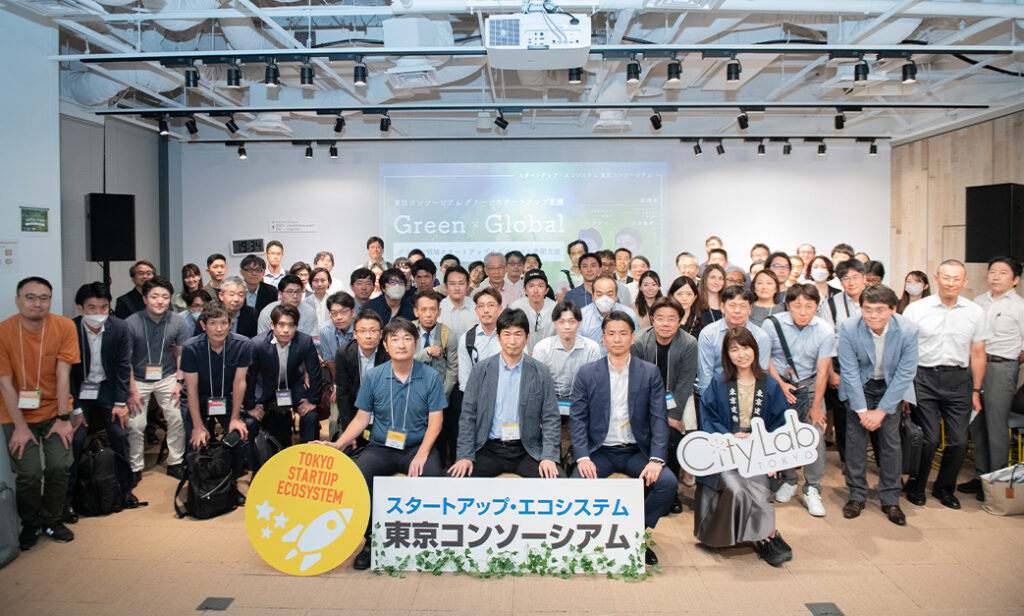
To open the event, we received a greeting from Mr. Toru Shida, Manager, Startup Promotion Division, Strategy Promotion Department, Startup and International Financial City Strategy Office, Policy Planning Bureau, Tokyo Metropolitan Government. He gave an overview of the green startup support project that the Tokyo Metropolitan Government started last year.
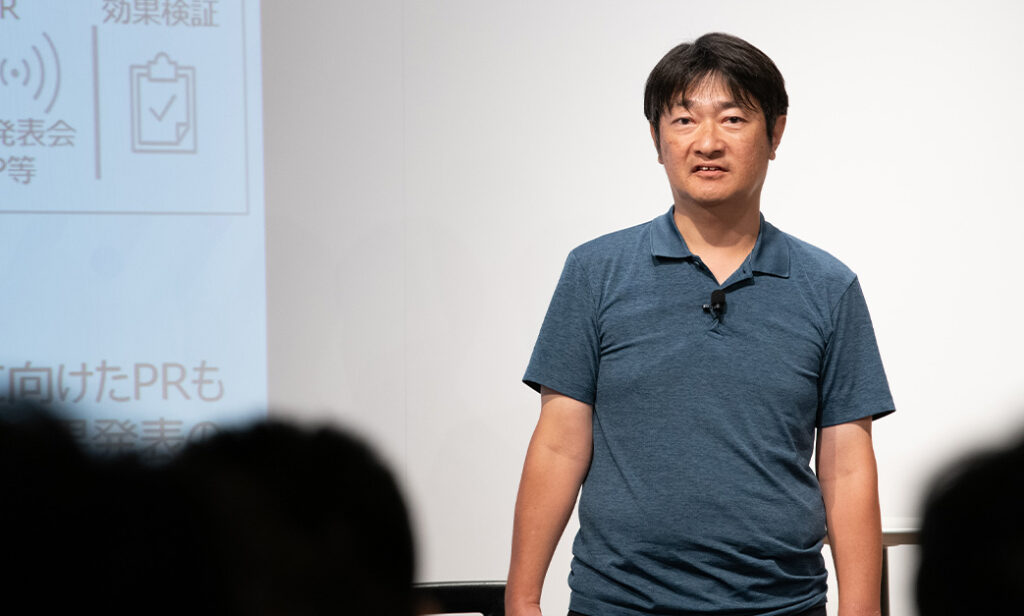
We welcomed Mr. Sakamoto as a special guest and had a conversation with Miyazawa, who served as the moderator. First, Mr. Sakamoto introduced himself, and then spoke about the following three main themes.
TBM Co., Ltd. Director Koji Sakamoto
Joined ITOCHU Corporation in 1990. In 2007, he transferred to Excite Co., Ltd. He was involved in the launch and listing of new businesses, and became the representative director. In 2012, he joined Yahoo Japan Corporation. In 2014, he founded YJ America, Inc. and became its president. While he is engaged in developing and supporting startups based in Silicon Valley, he also wanted to challenge the global market from the corporate side, so he joined TBM Co., Ltd. as an outside director in 2016. He has been a director since June 2018.
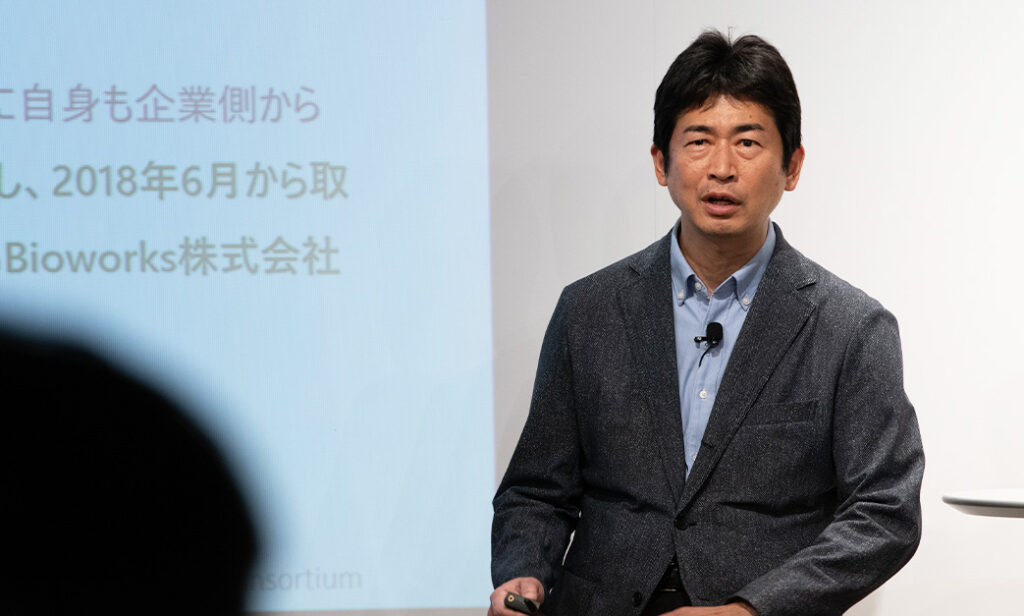
Yoshiaki Miyazawa, Executive Assistant, Deloitte Tohmatsu Venture Support Co., Ltd.
At an American strategic consulting firm, he engaged in consulting projects ranging from strategy planning to implementation support, including new business development, M&A, sales reform, and medium-term management plan formulation, in the financial, high-tech, telecommunications, infrastructure, and consumer goods industries. After that, he engaged in new business development in overseas and environmental infrastructure fields at a general trading company. Stationed in Central and South America, promotes cultivation of major local companies/influential partners, deepening of relationships, and new business exploration and development. After joining Deloitte Tohmatsu Venture Support, he was based in Tokyo and led business in the climate change field as an executive assistant. He supports major companies in new business development and startup companies' growth strategies.
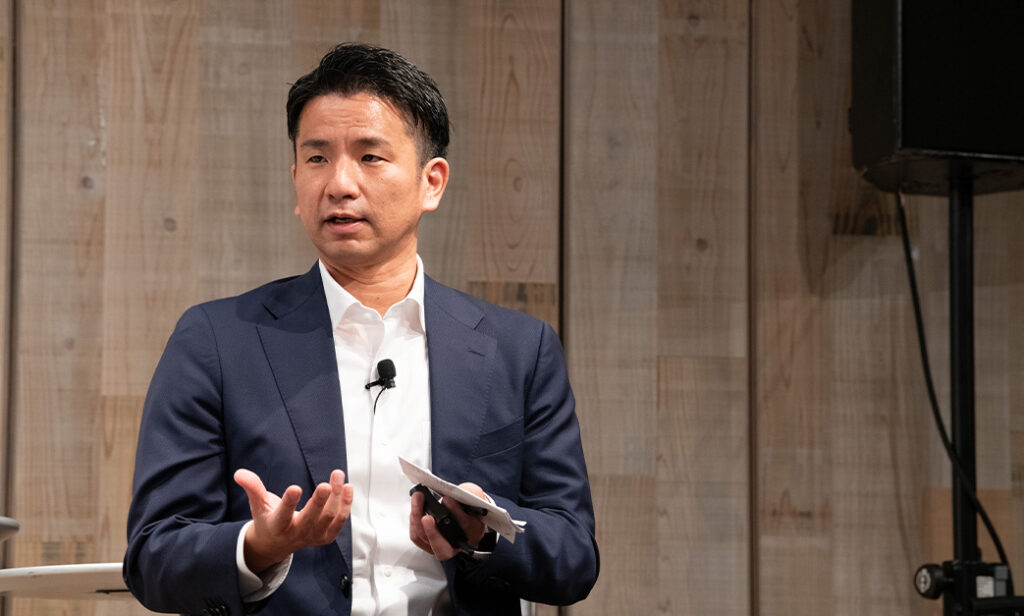
Below are excerpts and summaries of the conversation.
Miyazawa:Thank you for your time today. First, I would like to briefly explain global trends in the area of climate change.
The effects of climate change are worsening every year. Economic losses have doubled in the last 20 years compared to the previous 20 years, and this trend is accelerating every day. For this reason, net zero (*2050) by 1 is required, and renewable energy, energy conservation, and electrification are important to achieve this goal, but only about 6% of it can be achieved by doing so alone. It is said that in order to achieve the remaining 4%, business models and technologies that have not yet been realized will be necessary. Therefore, there is a need for more start-up companies and innovation.
*1 A situation in which the sum of the amount of greenhouse gases released into the atmosphere minus the amount of greenhouse gases removed from the atmosphere is zero.
On the other hand, it takes a long time for innovation in the climate change field to take shape, and it is extremely difficult. It is said that there are many so-called "valleys of death" (*2) and they are deep. There are many barriers to expanding the scale, and this is not an easy area. In order to overcome this problem, we believe that this is an area in which startup companies need to work together with the government, large corporations, investors, and everyone gathered here today.
*2 A state in which a startup's funds are about to run out between the early and middle stages. It is said to be a period with a high number of bankruptcies.
The United States has announced a $2 trillion investment plan. The Inflation Control Act (IRA) will be enacted and $3690 billion will be allocated to various green areas. This inflation control bill aims to reduce greenhouse gas emissions by 2030% by 42. Thanks in part to this support from the government, investment in startups and innovations in the climate change field is increasing year by year, doubling from FY21 to FY22.
If we turn our attention globally, we can see these trends. Next, Mr. Sakamoto, could you please focus on the circular economy?
サーキュラーエコノミーのトレンドとスタートアップの役割Mr. Sakamoto(Titles omitted hereafter): The economic scale of the circular economy is said to be 2030 trillion dollars, or 4.5 trillion yen in Japanese yen, by 600. Looking at how much companies around the world are starting to use recycled materials, Coca-Cola is the one using it the most. According to 2019 data, approximately 9% of their materials are recycled. In fact, Coca-Cola has declared that by 2022, 50% of all plastic will be made from recycled materials, or as they call it, sustainable materials, and although it hasn't been announced yet, perhaps as of today, It has reached almost 50%, and they have declared that they will switch to 2030% by 100. And other companies are following suit.
Also, among the various environmental businesses, the circular economy that we are focusing on, that is, the business of waste treatment and resource utilization, is a business that specializes in global warming countermeasures and a business that specializes in protecting the natural environment. It is said that the economic scale is overwhelmingly larger than that of Japan.
In Japan, more than 800 million tons of plastic are thrown away every year. Of this, thermal recycling (incineration used for power generation) and simple incineration account for 70%, and 25% is recycled. I think everyone is separating their waste properly, but most of it is still burned instead of being recycled. Under such circumstances, Japan also enacted the Plastic Resource Recycling Promotion Act last year. Although there are no strong penalties yet, this law is different from previous laws in that it applies not only to some packages, such as the Containers and Packaging Recycling Law, but also to all products that use plastic, and to restrictions on the distribution of plastic by manufacturers. The law provides a framework that requires everyone to recycle resources, including the retail stores that sell them, us who actually use them, and even local governments.
Miyazawa: Mr. Sakamoto, you are actually involved in projects related to circular economy in Japan, so how do you view the situation in Japan?
坂 本:There is a plastic circulation promotion law in Japan, and the country must move forward with it, but I feel that large companies are slow to move on. There is an interesting law in California, USA. When you sell a gasoline-powered car, you have to pay tax, but the law requires that the pooled portion of that tax be divided by the number of electric cars sold and paid to the company. What happened was that cars that emit exhaust gas were taxed, and the money collected was given to companies that made electric cars that did not emit exhaust gas.
In the end, Tesla was the sole winner. Tesla posted a profit for the first time in 2020 (approximately 780 billion yen), but in reality, their profit in 2020 was not due to profits from selling cars, but from the company selling gasoline cars in California. We were able to achieve this goal because we received the taxes we paid (approximately 1700 billion yen). There are people here today from the national government and the Tokyo metropolitan government, but I would like to see a system in which we take money from places that are not committed to national policies and pay them to places that are. I think it will accelerate even more in Japan.
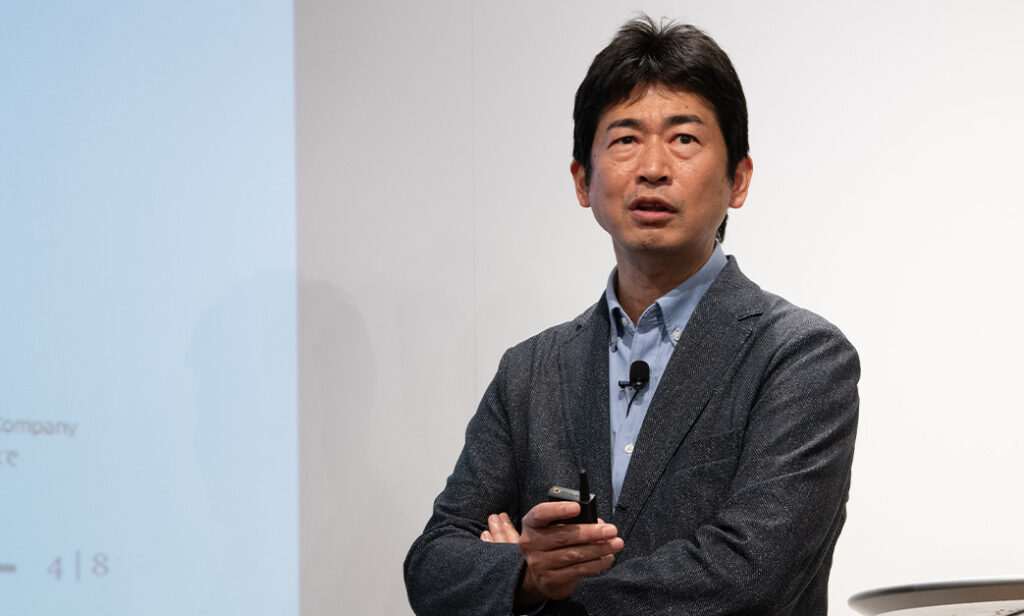
Miyazawa: I see, thank you very much. We have a lot of people here today, so I hope we can continue to exchange opinions. Next, please give us a detailed overview of TBM's business.
坂 本:First of all, the company name, TBM (Time Bridge Management), comes from our founder Atsuyoshi Yamazaki's desire to run a business that will last hundreds of years and to become a top player in the sustainability field. I put my heart into it.
It has been 13 years since our founding, and we currently operate three factories, with over 300 employees including the members of those factories. To date, we have received investment from various large companies to support our business.
The original idea for our product LIMEX (*3) began with importing stone paper made from limestone from a Taiwanese company. Because the quality of the stone paper was poor, LIMEX was developed using unique technology with support from various companies and countries.
*3 LIMEX is an inorganic filler-dispersed composite material that contains more than 50% inorganic substances such as calcium carbonate. Born in Japan, LIMEX uses limestone as its main raw material to form plastic and paper substitute products, and can be recycled.
We originally started with a business called LIMEX, but last year we also started a resource recycling business, which I will explain later.
When LIMEX is used instead of paper, it can protect water and forests, and when it is used instead of plastic, it can protect petroleum resources, which are the main raw material for plastic. Petroleum-based plastics are one of the biggest causes of global warming, so reducing the amount of petroleum plastics can reduce greenhouse gas emissions. Furthermore, and this is important for resource circulation, LIMEX can be recycled repeatedly if properly collected.
The applications of LIMEX are expanding, with the cooperation of not only large companies but also small and medium-sized molding factories. LIMEX is being developed based on the policy of being able to manufacture and process products using existing equipment, so we are proceeding through partnerships with various companies rather than competing with them.
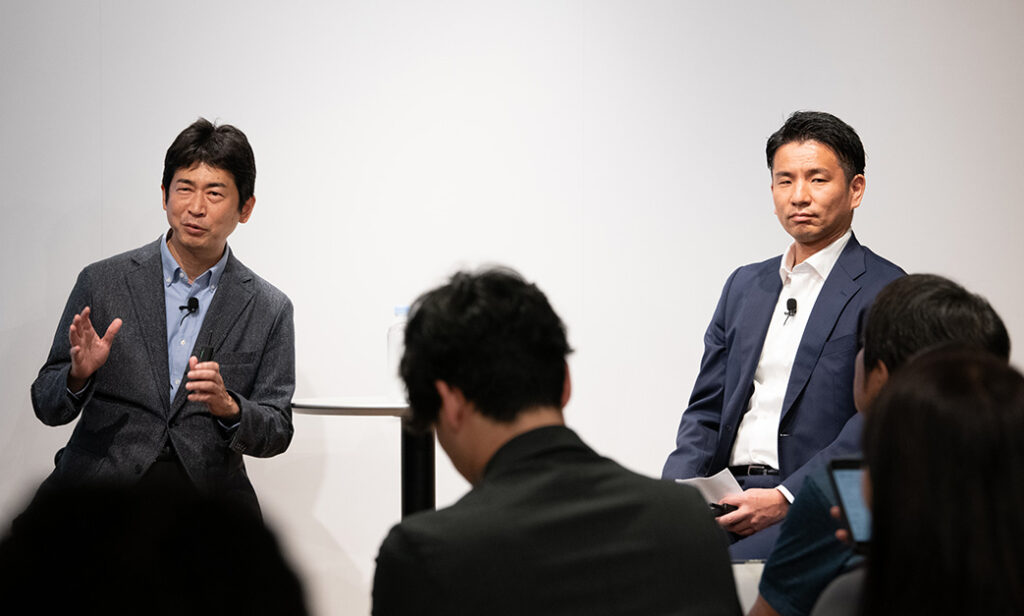
We also collaborate with various partners in areas related to resource circulation. For example, at the Adventure World theme park in Wakayama Prefecture, LIMEX is used for maps and drink cups used inside the store. Instead of throwing away used items, we collect them and recycle them into trays for use in restaurants and cafeterias within the theme park. Another example is the J.League club Vegalta Sendai, where we collect LIMEX cups used at their stadium, mix them with wood, turn them into benches, and donate them. Although it is not horizontal recycling, it is an example of how materials can be properly collected and reborn for new uses.
Additionally, as one of the major highlights of our resource recycling efforts, we completed construction of the Yokosuka Plant, one of the largest recycling plants in Japan, on November 11 of last year. We have started our own recycling factory, which has been in full operation since April of this year. Why did a venture company go to the trouble of setting up a new recycling factory? As I explained earlier, about 11% of plastic waste in Japan is burned, and most companies that claim to be recyclers in Japan only go through the process of burning plastic. At this factory, we are taking on the challenge of recycling the 4 tons of plastic we collect each year back into plastic. At this factory, we are preparing to collect and recycle not only plastic, but also LIMEX as it becomes more widespread in the future. In the future, we would like to establish multiple factories of the same size in Japan, and also expand factories and systems that can recycle resources overseas.
Miyazawa:As a start-up in Japan's green field, I understand that you are a top runner. I imagine that you have been able to cooperate well with large companies, financial institutions, and investors in expanding LIMEX and the resource recycling business, but how have you been doing in this area?
坂 本: From the early days to the present, the details and progress of collaborations have varied, but many companies have invested and provided support in advancing research and development and business. One thing I can say is that startups tend to push their products and services out into the world rapidly, and they often fail. On the other hand, large companies have a wealth of experience and know-how to overcome obstacles. By establishing a thorough check process similar to that adopted by such large companies, failures can be reduced, and as a result, it may be easier for other companies to adopt the technology.
Miyazawa:You mentioned that you received investment from many large companies, but I think that is the part that is extremely difficult to overcome. Do you have any points to consider when investing?
坂 本:We have invested in dozens of companies so far, but the number we have approached is probably about 10 times that number. I didn't give up, and I was persistent and persistent, going to meet people from various companies, and I kept going over and over again, thinking, ``Even at the same company, people in this department aren't good, but this department might be a good fit.'' Ta.
Once you find someone to support you, that person will run around the company and do whatever it takes to support you, so it's important not to give up until that point. What I would like to tell startups is that if you are rejected once by a department at Company A, don't think it's no good; if you really want to join that company, go to various departments, go to your superiors, etc. I think you should be really persistent, such as going to see the president.
Miyazawa: Mr. Sakamoto, you saw a lot of startups when you were in America. What kind of startups are attractive to large companies, and are there any types of startups that would be more receptive to large companies if they communicated in this way?
坂 本:To put it in a mundane way, there are various factors such as whether the company is able to differentiate itself through technology, but in the end, large companies receive many offers from startups, so those who give up quickly tend to leave. However, the person who was the most persistent and submitted the proposal many times won in the end. However, I think it's not just about being persistent; it's about passion and a can-do attitude.
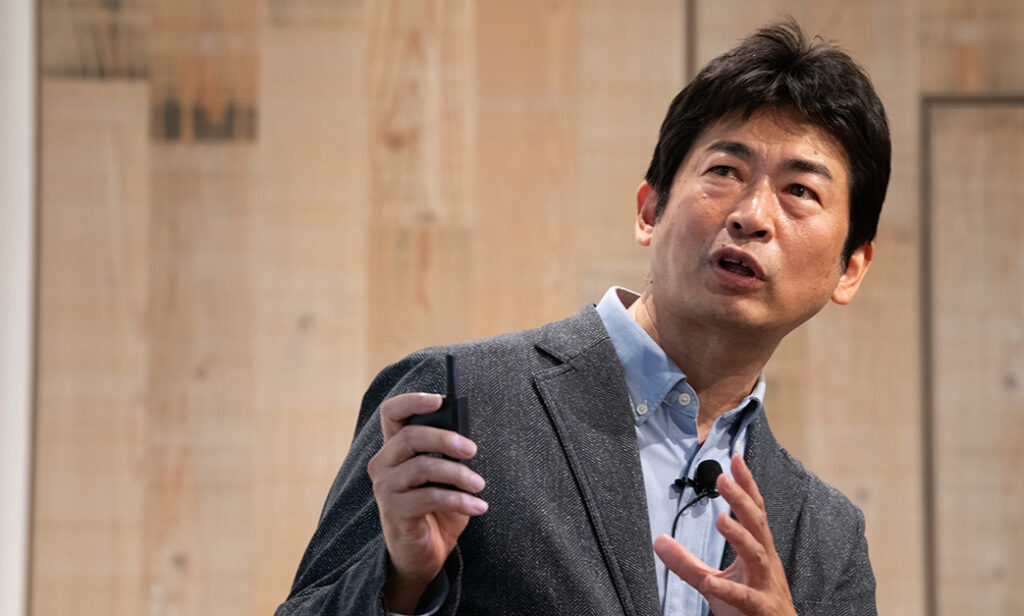
グローバル展開に向けたサステナビリティ革命Miyazawa:Technology and business model are important, but the attitude of not giving up, tenacity, and passion are extremely important. In this context, I believe you have plans for not only domestic but also global expansion. Can you give us a glimpse of that?
坂 本:We at TBM position the following three as key factors.
The first is intellectual property strategy. Nowadays, it is very easy to obtain global patents, and it is important to obtain the minimum basic patent. LIMEX has acquired over 40 rights in over 150 countries around the world, and has started operations worldwide. We received the "Minister of Economy, Trade and Industry Award" in the 4 "Intellectual Property Achievement Award" presented by the Patent Office of the Ministry of Economy, Trade and Industry. The Ministry of Economy, Trade and Industry also provides subsidies for obtaining patents, so I think it would be a good idea for startups to take advantage of this.
The second is the fabless model (*4). A model in which final products cannot be produced without owning your own factory takes a lot of time and money. In the case of LIMEX, once the materials are made, it can be molded in existing factories, allowing rapid global expansion. The ingredients, limestone and resin, are available all over the world, so as long as you have the recipe, you can make it anywhere.
*4 A model that operates as a manufacturing company without owning a factory.
The third is collaboration with global partners. As environmental regulations change rapidly around the world, it is difficult for us Japanese venture companies to advance our business while learning each country's rules. Therefore, we need to partner with companies from each country. We have agreed to a capital and business alliance of 135 billion yen with the Korean conglomerate SK Group, and are moving forward with the LIMEX business while incorporating it into their global strategy. We hope that they will work with us to develop what they want to sell and sell it through their global network.
We are also collaborating with distributors and industry organizations in other countries to adapt our products to each country's rules and culture. For example, China partners with local governments because local governments are strong. We change our methods depending on the country and region, such as establishing a local subsidiary in Vietnam and contracting with a local agency in Thailand.
Also, green startups are more likely to appear at international conferences and international communities (exhibitions, summits, etc.), so you should keep trying. A variety of customers from overseas come to events held in Japan, so be sure to actively participate. It is easy to get support from the Ministry of the Environment and the Ministry of Economy, Trade and Industry, and Tokyo also holds global conferences. There is a lot of demand for green startups right now, so I think it would be a good idea to take advantage of them as much as possible.
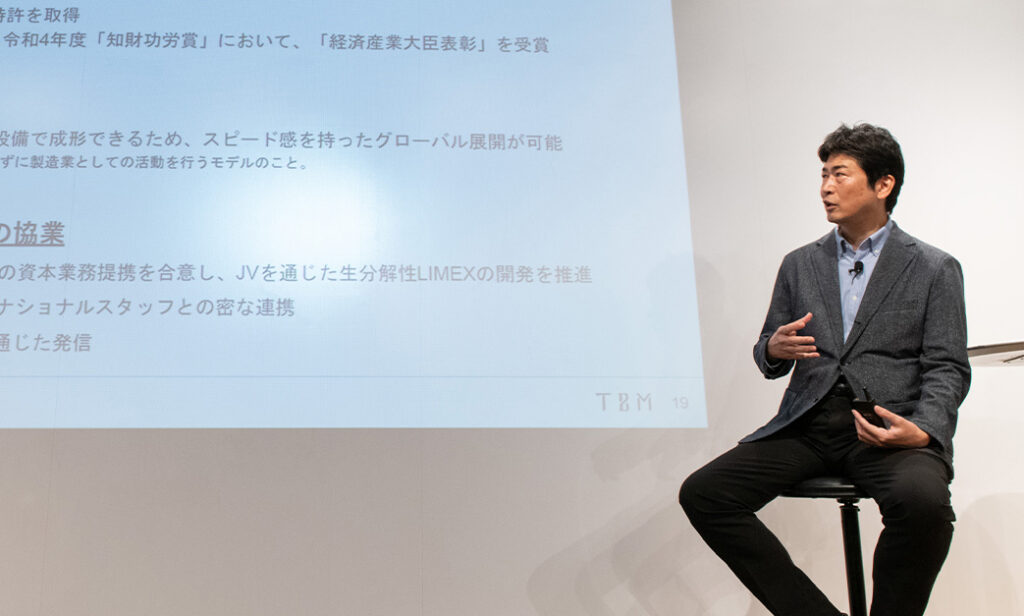
We have set goals that are globally applicable. One is "Go Carbon Negative." Our goal is to make all of our businesses carbon negative by 2030. The other is "Go Circular". The goal is to circulate 2030 million tons of LIMEX and plastic in 100 countries by 50. We are moving forward with our business with these ambitious goals in mind.
Miyazawa:Thank you for your explanation. In the green field, when did TBM start thinking about expanding globally, given the difficulty of just running a business domestically?
坂 本: From the time of the company's founding, founder Yamazaki had been thinking about creating a business that could be expanded globally.
Miyazawa:When did you make your first move?
坂 本: Starting from a really small point, the LIMEX factory first started operating in Shiroishi Zao, Miyagi Prefecture in 2015, and the products made there were featured in posters for Expo Milano. Although it was very small, I think it was the first step towards global expansion.
Miyazawa: How did you get the job to do the poster for Expo Milano?
坂 本:The Milan Expo is a valuable venue for showcasing Japanese technology to the world, so the Ministry of Economy, Trade and Industry and many other people have worked hard to make this possible.
Miyazawa: Earlier there was talk about partnering with South Korea's SK Group to advance global expansion, but there are many large companies in Japan that are expanding globally. Is it difficult to collaborate with Japanese companies?
坂 本:We are a Japanese venture company, so if possible we would like to expand overseas together with a Japanese company, but it just so happened that South Korea's SK Group was very active and approached us about expanding overseas together. there was. In fact, when you go to an international event, you will receive as many collaboration offers from overseas companies as from Japanese companies, so I think it is better to have the option of partnering with overseas companies from the beginning.
Miyazawa: Is it possible to partner with different companies in Japan and overseas depending on the nature of the business?
坂 本:In fact, Japanese incinerators emit the least toxic gases in the world and have the highest power generation efficiency. Several leading companies are already selling incinerators in Europe, but we believe it is possible to create a business that combines our recycling technology with Japanese incinerators and sell them overseas together with large Japanese companies. I think it has something to do with gender.
Miyazawa:I think the goal of expanding into 50 countries around the world is truly ambitious, but what are your thoughts on expanding into Europe, for example?
坂 本:Europe has a really high level of environmental awareness, and I would like to expand into Europe as soon as possible, but the rules are very strict and the hurdles are high. For example, there are restrictions on the export of raw materials, and more and more laws are being enacted that make it advantageous to do resource recycling within the EU. It would be difficult for us to do it alone, so we would need to partner with a company that does business in Europe, or a company that can lobby effectively in Europe.
Miyazawa:thank you. Lastly, could Mr. Sakamoto give a message to everyone participating today?
坂 本: Many startups with good technology and systems are emerging in Japan. Large Japanese companies and startups will successfully create synergies, and if necessary, we will also involve large overseas companies and overseas startups. It would be great if we could do these things together with everyone. Thank you, continue.
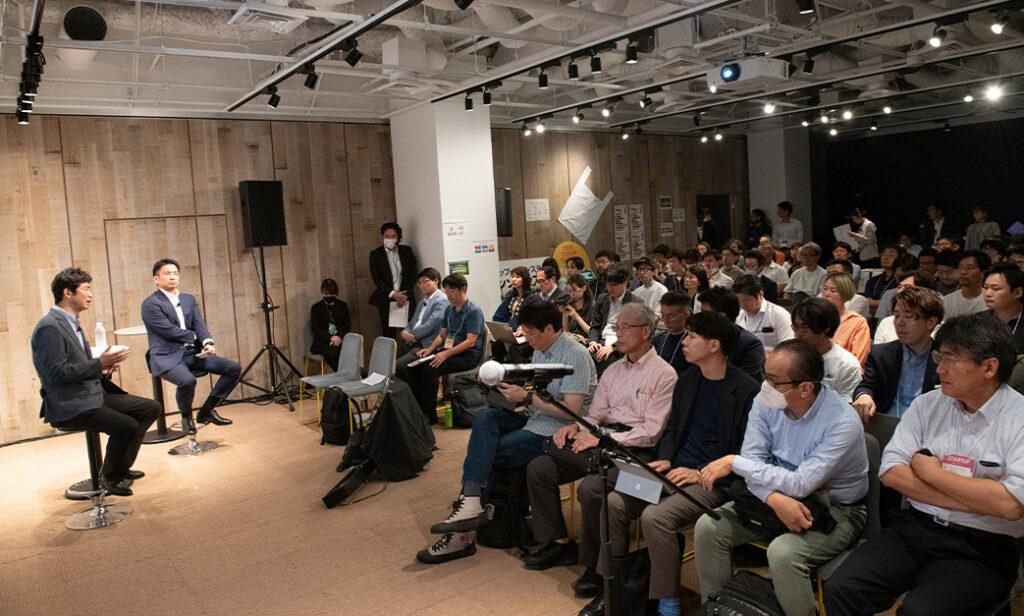
Yosuke Morimoto from the Tokyo Consortium Secretariat introduced the Green Startup Support Program by the Tokyo Consortium. The Tokyo Consortium is recruiting companies for green startup support in 2023.
Recruitment of companies eligible for 2023 “Green Startup Support” begins (tokyo.lg.jp)
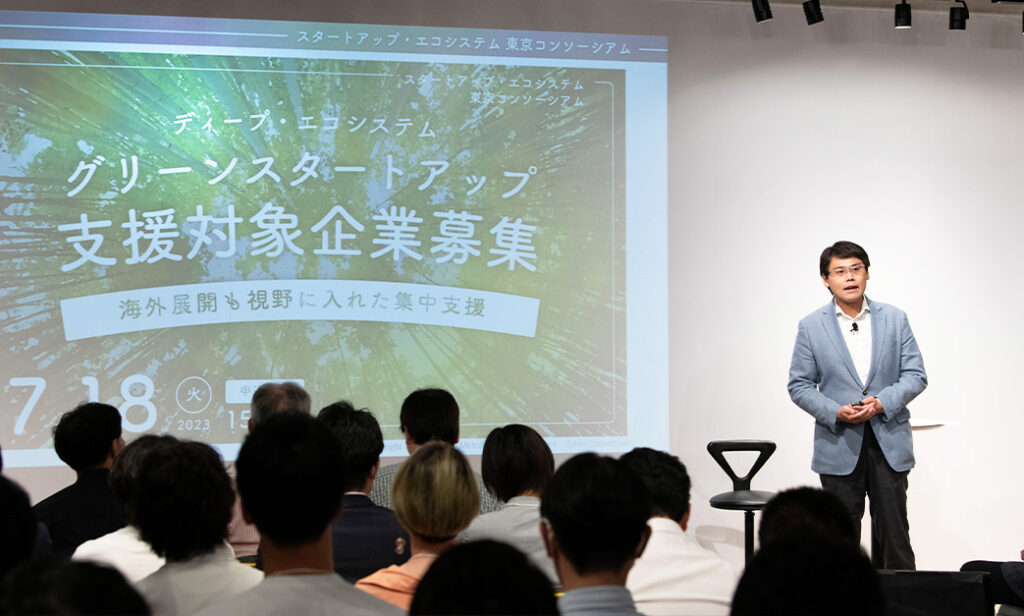
Tokyo Tatemono, a Tokyo Consortium member, introduced us to their sustainability initiatives. Next, NEDO (New Energy and Industrial Technology Development Organization), which is expanding its budget for green areas, introduced its support project for startups.
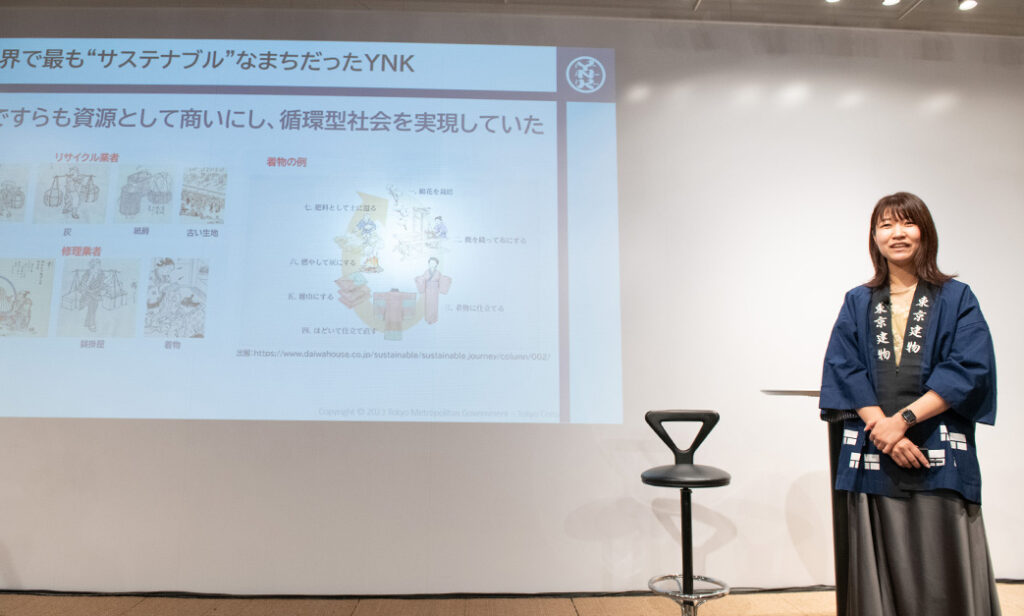
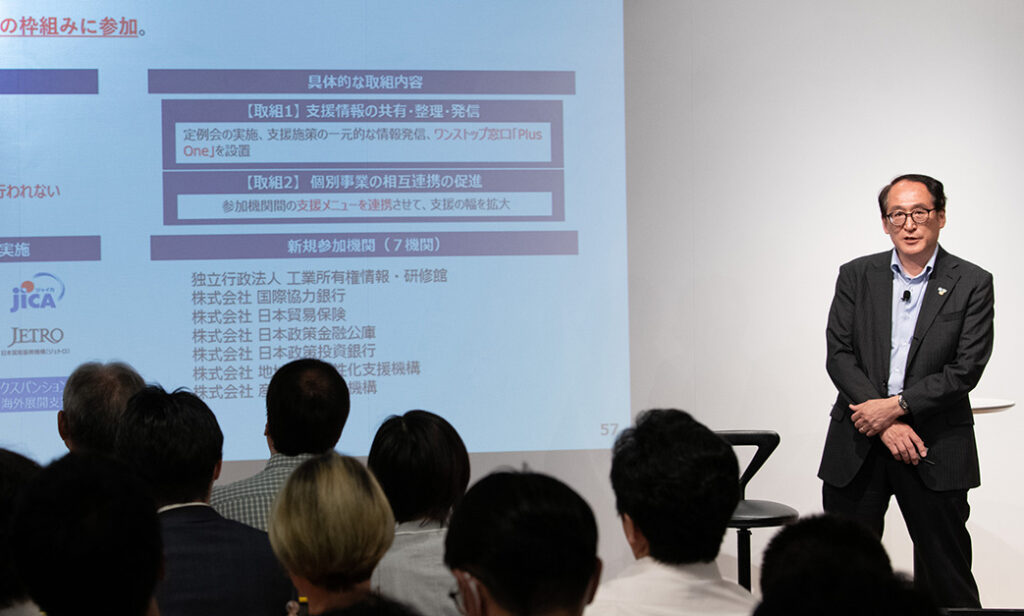
A social gathering was held for all the participants. At the venue, juice from Kagome, a Tokyo Consortium member, was served free of charge. In addition, so that participants' attributes can be seen at a glance, the design of the special mount on the neck strap is divided into "startup," "business company," "investor/financial institution," "municipal government/university," and "media." It played a role in smooth communication among everyone. The venue was filled with a lively atmosphere, and a lively exchange of information took place until the end of the session.
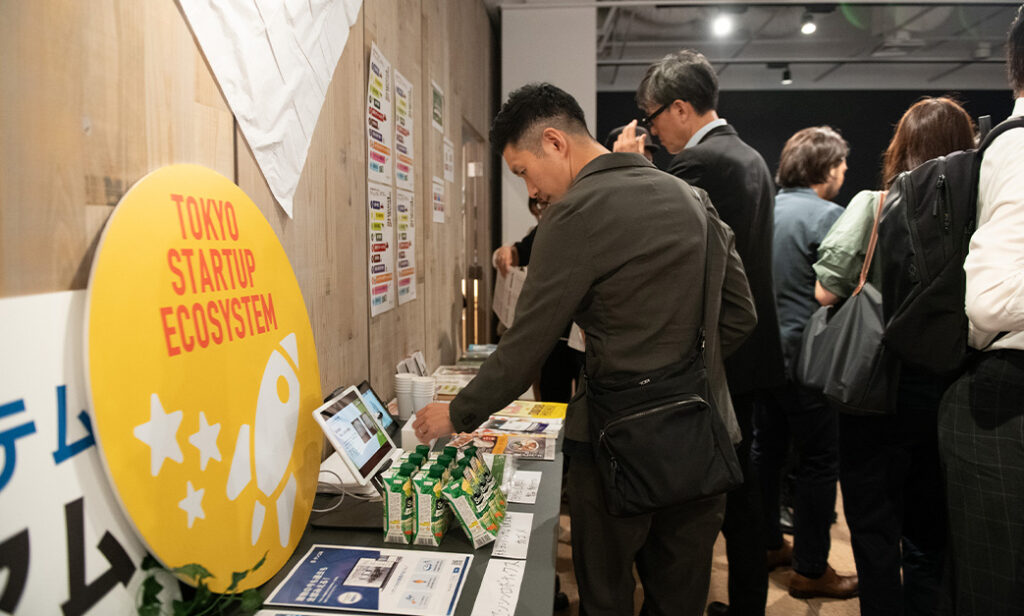
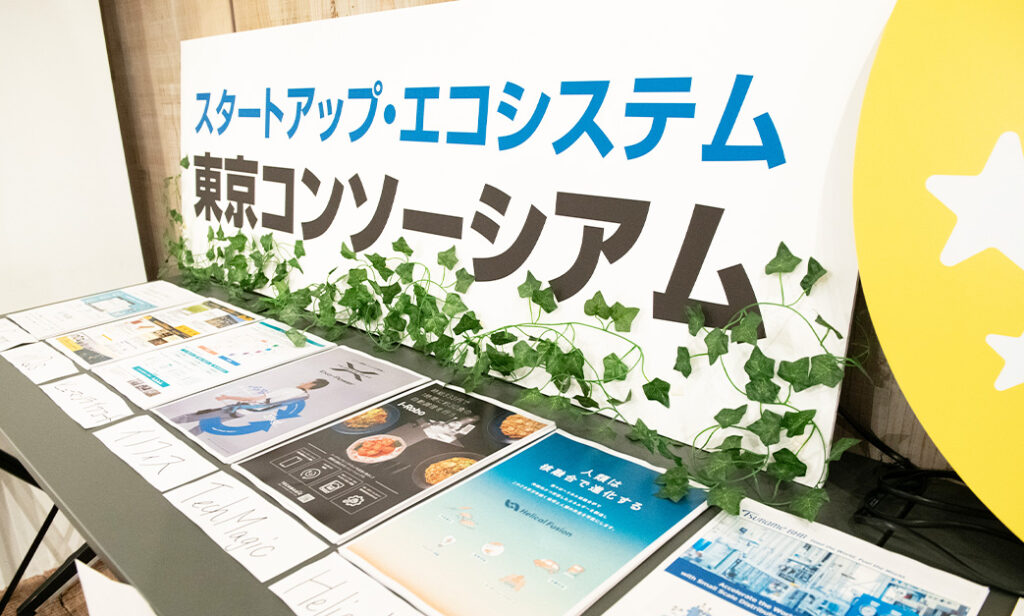
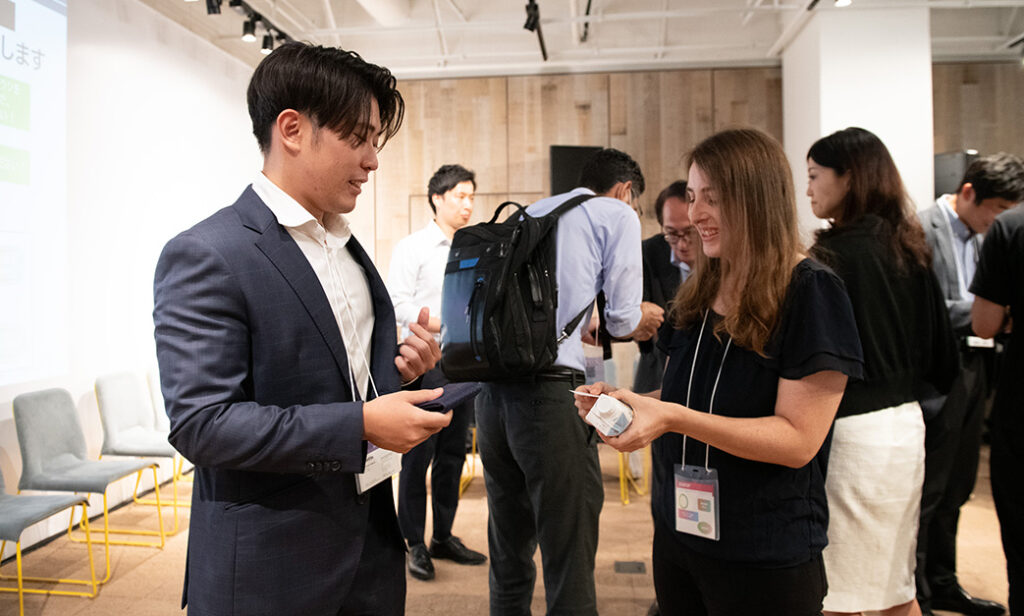
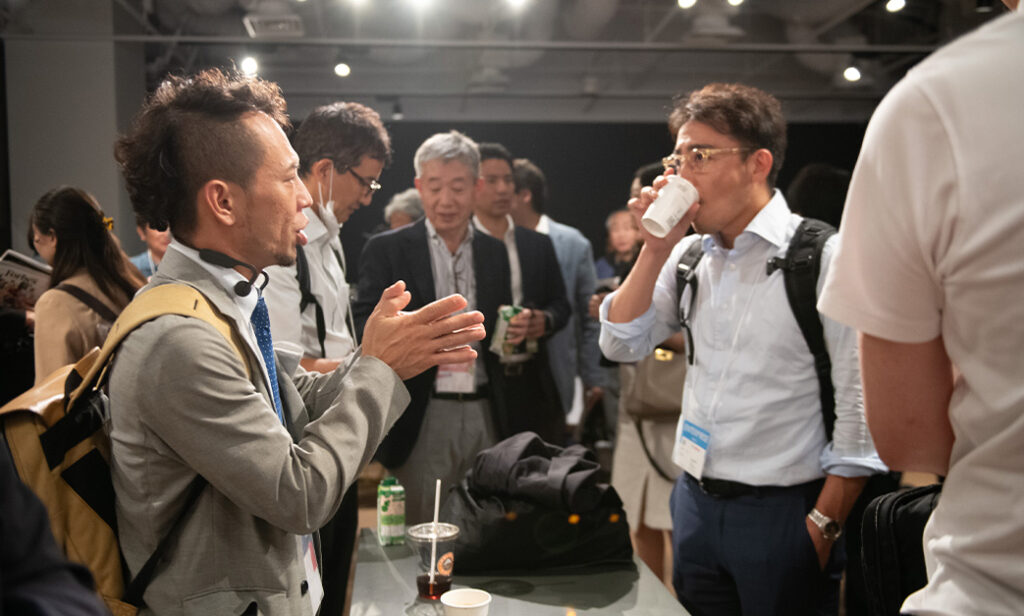
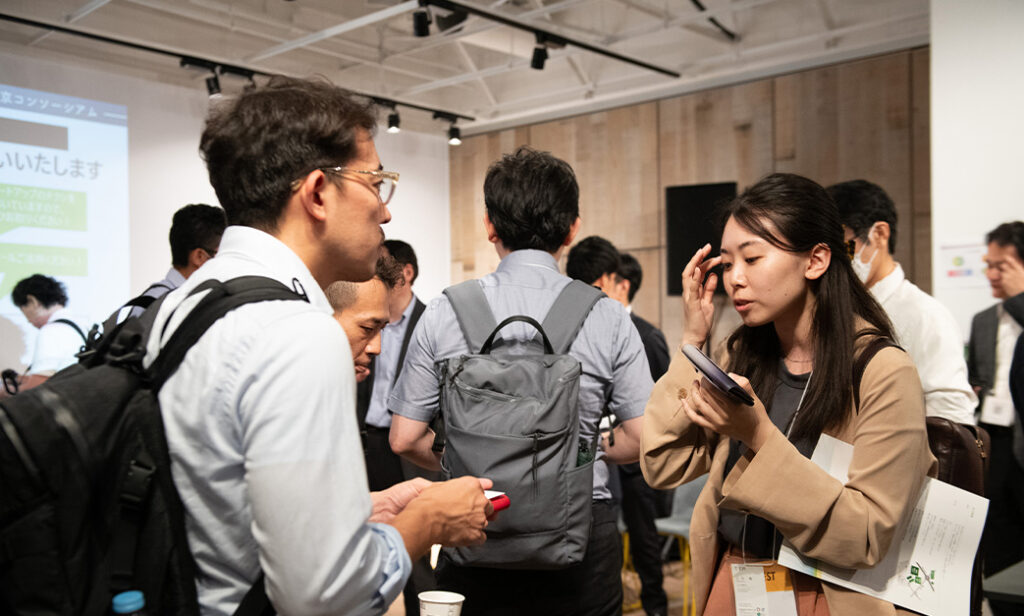
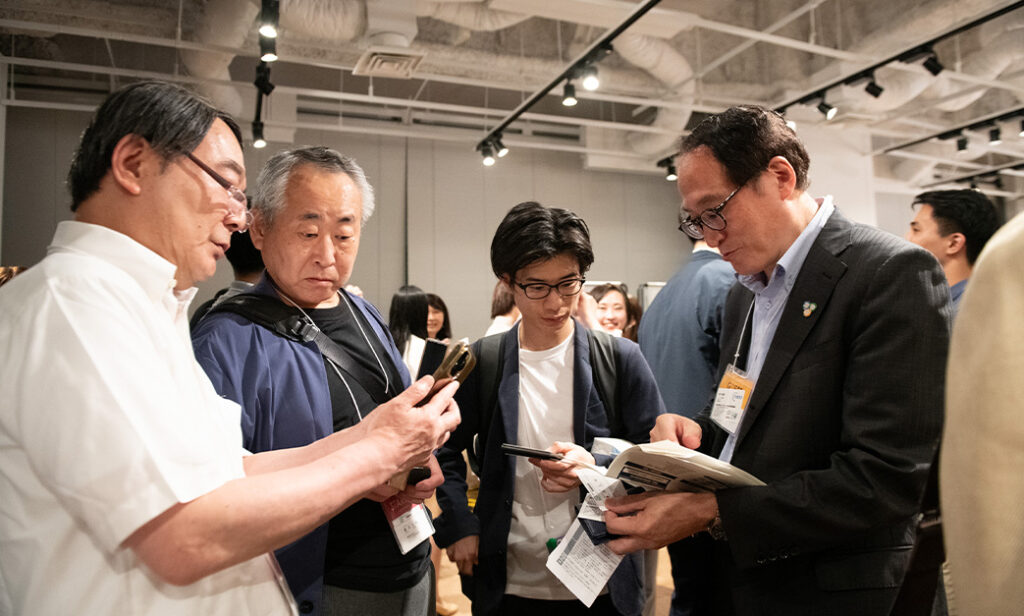
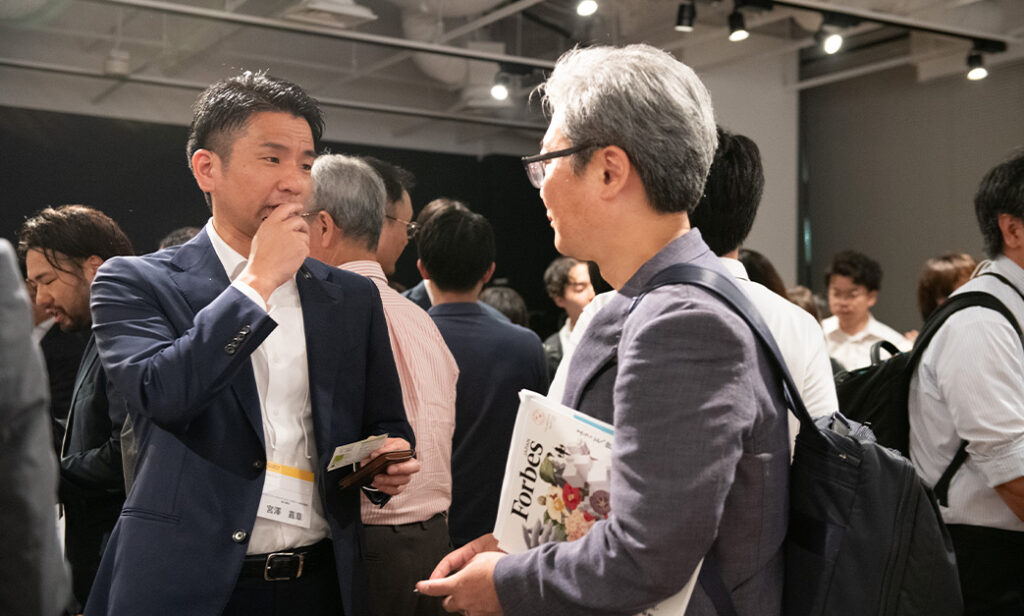
``There are few Japanese startups that are actively expanding overseas like TBM, so I felt it was a very valuable opportunity to actually listen to Mr. Sakamoto's story, and I learned a lot. is"
“The keyword that Mr. Sakamoto mentioned was ``persistent'' that left an impression on me.Businesses in the green field do not produce results right away, so it is important to take on challenges with passion without giving up and to maintain a strong desire. I felt that
“I am a VC person, and networking events like this where I can meet startups, VCs, and CVCs who are interested in the same themes are very valuable. Carbon neutral and circular economy fields cannot be achieved by just one company, so Personally, I'm happy to be able to meet people from various business companies."
“The ESG field has different characteristics depending on the country, and new rules and regulations are being introduced all the time, so listening to Mr. Sakamoto's story made me realize once again that it is important to partner with overseas partners when expanding overseas. Ta"
“I thought that the stories of people like Mr. Sakamoto who had actual experience were very persuasive.If I have a chance to hear them again, I would like to hear more about their failure stories, which would be helpful for startups who want to expand overseas.” I’d like to try it.”
``As Mr. Sakamoto said, various countries are starting to create their own regulations in the environmental field.If you go into business without knowing anything, you will end up failing and wasting your time. I think we should exchange information before going abroad."
that's all.